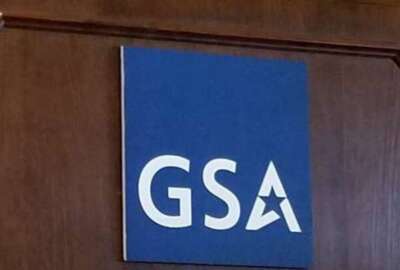Interior’s scientific integrity policy doesn’t sit well with some scientists
"Confidentiality is anathema to the purpose of these policies, which is to restore public trust," Jeff Ruch said.
The Interior Department posted a revised scientific integrity policy last month. It requires each component agency to appoint a career staff person as scientific integrity officer. But to one group of scientists, the policy differs little from protections that were greatly weakened during the Obama administration. Jeff Ruch of Public Employees for Environmental Responsibility (PEER) explains more on the Federal Drive with Tom Temin.
Interview transcript:
Tom Temin Jeff, good to have you back.
Jeff Ruch Hi there. Thank you.
Tom Temin Well, tell us about this policy. What caught your eye and what the objection to PEER is of it?
Jeff Ruch Well, so this is an effort that was launched by President Biden shortly after his inauguration to toughen scientific integrity policies after the Trump administration. And for the most part, agencies have been left to fashion their own policies. And they’ve done so in a way that protects their own managers and political appointees from having to be named as violators or suffer any consequence as result. More scientific impunity policy, more than a scientific integrity policy.
Tom Temin Tell us about the Interior posting.
Jeff Ruch One of the things that was notable about it is that it appeared right before Labor Day with no public notice or comment. It was developed in secret, which is hardly a recipe for ensuring public trust. It builds on another policy that they did ten years ago where when they originally got into this work in 2011, they had a very strong policy that empaneled independent experts to review scientific integrity complaints that resulted in findings naming managers. And that resulted in Interior, right before Christmas of 2014, gutting that policy, instead coming up with this current formula that they’ve just repeated. And so the nature of it is they have one handpicked person who can determine whether something will be investigated or not, and they decide it’s not worthy of investigation. There’s no review and there’s no appeal. If there is an investigation, that person does the investigation with no protocol, no outside procedure. It’s basically star chamber. It’s done in secret. And then the results are only reported after the fact in an annual report that’s summarized to the point where the substance is, in the words of the policy, anonymized, which is not a word that is meant to foster scientific integrity. In addition, the review panel, the whoever does the review is forbidden by the policy for making any recommendation of disciplinary action against a manager found to be responsible. And further, no report can be issued without the approval of the Interior Solicitor’s office, which is sort of like having the Corporate Defense Council for all pollution enforcement. So you put it all together and this is all about self protection. And part of also what was done in secret was some other agencies asked their own scientists what was needed. Interior didn’t do that. They didn’t ask the public. And instead they have done something that’s really designed to protect themselves.
Tom Temin And just maybe back up for a moment, if you would. What does a violation of scientific integrity look like? What forms could it take in a federal setting?
Jeff Ruch For example, suppression of research, preventing it from being published or altering research results or removing key findings or otherwise sort of manipulating things. So, for example, these policies were inspired by the W. Bush administration when they were rewriting reports to remove any reference to climate change or they were taking endangered species recommendations and taking out the conclusions. Those scandals resulted in President Obama ordering that there should be some sort of federal policy. The old saying that everybody is entitled to their own opinion, but not to their own set of facts. In fact, federal agencies are entitled to their own set of facts. When the Bush people were asked why they did this and they said, well, because we could, there’s no rule against it. And they view their rule as leavening science with policy considerations. So the official policy since then has been, no, these scientific results are not supposed to be edited to make sure that they only support the political talk. They’re supposed to come out regardless of their policy implications. And the nature of that mandate goes against ingrained bureaucratic tendencies. And that is what is playing out again today.
Tom Temin We’re speaking with Jeff Ruch. He is the Pacific Director for Public Employees for Environmental Responsibility, known as PEER. And what would a good policy look like? I mean, what are the components of a policy you feel would protect scientific integrity?
Jeff Ruch Well, actually, the original Interior policy adopted in 2011 had a lot of good elements. And there are some good elements in the policy that NOAA has, which is that the decision whether to accept an investigation is subject to review and appeal. And when there is an investigation, there are rules that govern it and that the fact finders are independent experts because in many instances these are technical disputes that require some expertise in order to fairly judge them. And those findings then are made public. And one of the things about this interior policy is they’re saying that everything has to be held confidential, but there’s no legal justification for that. So, we have had to go to the Freedom of Information Act, and in some instances, litigation, in order to obtain these sort of things. So an agency declaring these findings are confidential with no legal justification suggests an ulterior motive that is unbefitting Interior.
Tom Temin Therefore, yes, so the 2011 policy made it a public event and everyone could see the results and the research itself that was being questioned or not questioned was also available as part of the mix of what people could see.
Jeff Ruch And when scientists began winning those cases and managers were named, Interior decision makers decided that was an intolerable result. And so they got into policy. As I said, right before Christmas, again with no public notice or comment. And since then, no senior manager or political appointee in the Department of Interior has been tagged for a scientific integrity violation. And under this new policy, which went into effect before it was even announced and it’s been in effect since August 20. We don’t think anyone will be held to account. One of the other experiences we’ve had is that the scientific integrity officer is a senior civil servant and they have no particular protection. We represented one of the scientific integrity officers who himself pursued a complaint. This is during the Obama administration and he was abruptly fired. Point of that is that a mid-level officials who undertake inquiries that embarrass their own agency are then required to cast a profile in courage and is done without any sort of protection for them or any sort of independent review to back them up. So all the career incentives and this is the common result we have as a well-documented complaint is filed and it’s deemed not worthy of investigation and of case. And that’s laughable as the basis of the scientific integrity polls.
Tom Temin Are there any other departments that have come up with policies under the Biden administration instructions that seem more complete to you?
Jeff Ruch NOAA is a very good example. A sister agency, but in a different department. They also used the independent panels to do reviews. Our chief complaint about the NOAA policy, which is one that’s chaired by Interior, is NOAA wants to keep everything confidential. And we think that this confidentiality is anathema to the purpose of these policies, which is to restore public trust. You can’t restore public trust from a black box. And unless they’re kind of open debates about what is going on, which really sort of the nature of the scientific process, it really is more of a shuck and jive than a scientific integrity review.
Tom Temin What about EPA? That’s always been kind of a crucible for these things as parties come and go in the White House.
Jeff Ruch EPA’s policy, new policy, this new generation of Biden is still kind of stuck in limbo. And the reason I chuckled is that they say that they have the strongest policy, but it’s really by far one of the weakest. So, for example, EPA has no rules governing whether something will be investigated. And so as a result, nothing is investigated. So all during the Trump administration, there were many complaints, but not one of them was investigated. There’s no requirement that they be investigated and there’s nothing that governs how the investigation is conducted. Further, EPA takes the position that a violation of the scientific integrity policy does not result in any kind of discipline or punishment. They’re saying that’s not in our lane. So as a result, it remains a policy without any kind of enforcement. And the policy without enforcement is more of a suggestion than a policy.
Tom Temin Well, now we’re about to have a change in administration. We don’t know who it’s going to be. Sounds like you’re going to keep pressing on this issue regardless.
Jeff Ruch One key flaw that both Obama and Biden made that we hope is not repeated is leaving it up to each agency to decide how the integrity of their own work is judged is a fool’s errand. It’s bound to failure. And there’s not a reason why you wouldn’t have uniform rules that are federal wide that, for example, govern when something can be approved for peer review. And if it’s denied, how that appeal takes place, how investigations are done. And frankly, investigations would be improved if you had experts from other agencies looking in rather than have everything confined to people who are answering the chain of command that they’re judging and that a lot of this material that we’re talking about be part of an administrative record that’s readily apparent. So one of the very few new things in the new Interior policy is authorizing employees to file differing scientific opinions, quote unquote. However, there’s no procedure for firing them who they’re fired with, what the impact is. Moreover, there’s no legal protection for a scientist who gets professional blowback for filing a differing scientific opinion. So they do so at their own risk. But it’s sort of this mixed message that’s inherent throughout this policy, which is scientific integrity is fine so long as you don’t exercise.
Tom Temin Well, we’ll see what happens in the next administration because sounds like things are kind of stasis right now.
Jeff Ruch A lot more work to do.
Tom Temin Jeff Ruch is the Pacific Director for Public Employees for Environmental Responsibility, PEER. Thanks so much for joining me.
Jeff Ruch Thank you for having me.
Tom Temin And we’ll post this interview along with a link to more information at federalnewsnetwork.com/federaldrive. Subscribe to the Federal Drive wherever you get your podcasts.
Copyright © 2025 Federal News Network. All rights reserved. This website is not intended for users located within the European Economic Area.
Tom Temin is host of the Federal Drive and has been providing insight on federal technology and management issues for more than 30 years.
Follow @tteminWFED






